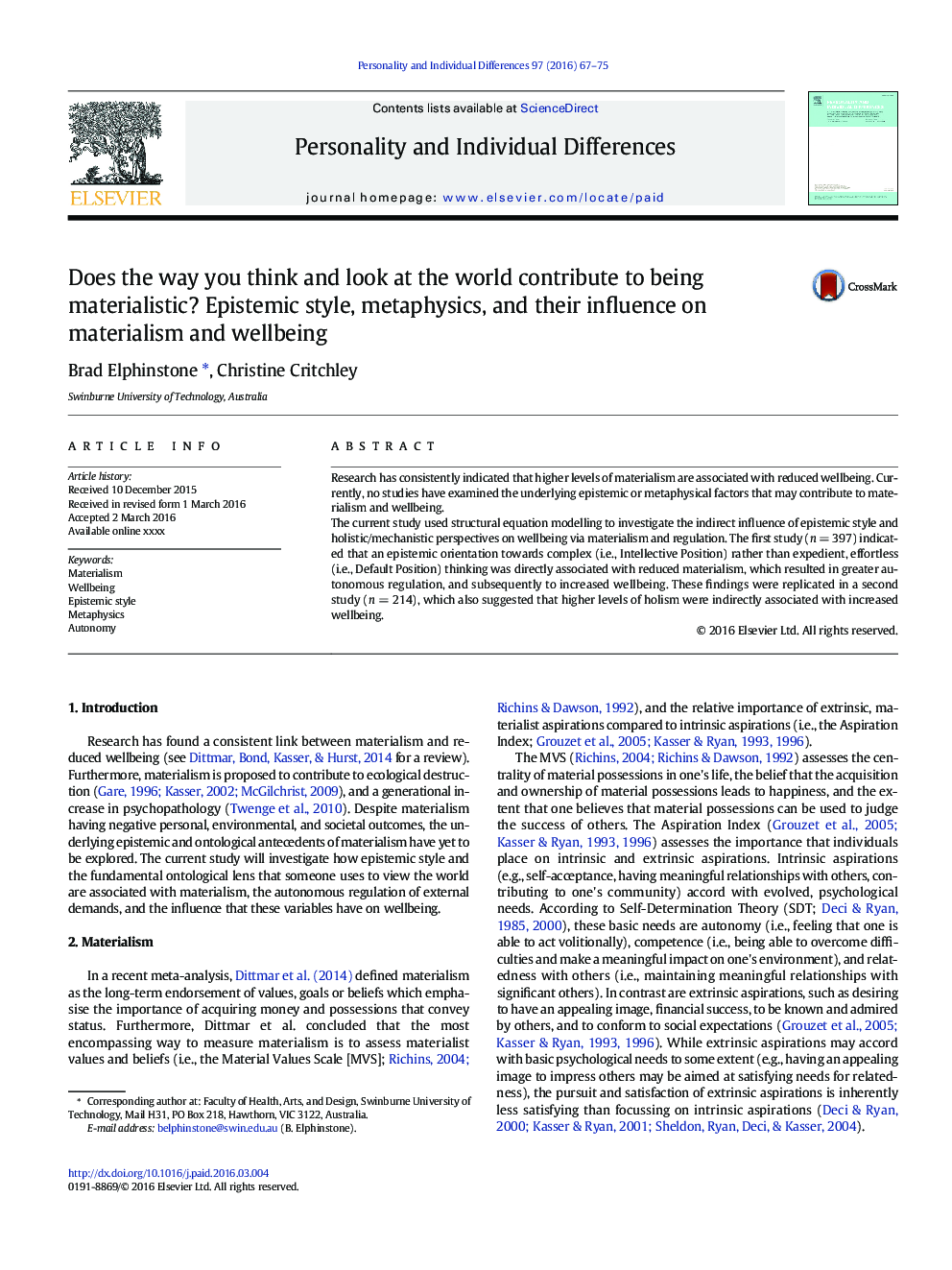| Article ID | Journal | Published Year | Pages | File Type |
|---|---|---|---|---|
| 7249932 | Personality and Individual Differences | 2016 | 9 Pages |
Abstract
The current study used structural equation modelling to investigate the indirect influence of epistemic style and holistic/mechanistic perspectives on wellbeing via materialism and regulation. The first study (n = 397) indicated that an epistemic orientation towards complex (i.e., Intellective Position) rather than expedient, effortless (i.e., Default Position) thinking was directly associated with reduced materialism, which resulted in greater autonomous regulation, and subsequently to increased wellbeing. These findings were replicated in a second study (n = 214), which also suggested that higher levels of holism were indirectly associated with increased wellbeing.
Related Topics
Life Sciences
Neuroscience
Behavioral Neuroscience
Authors
Brad Elphinstone, Christine Critchley,
